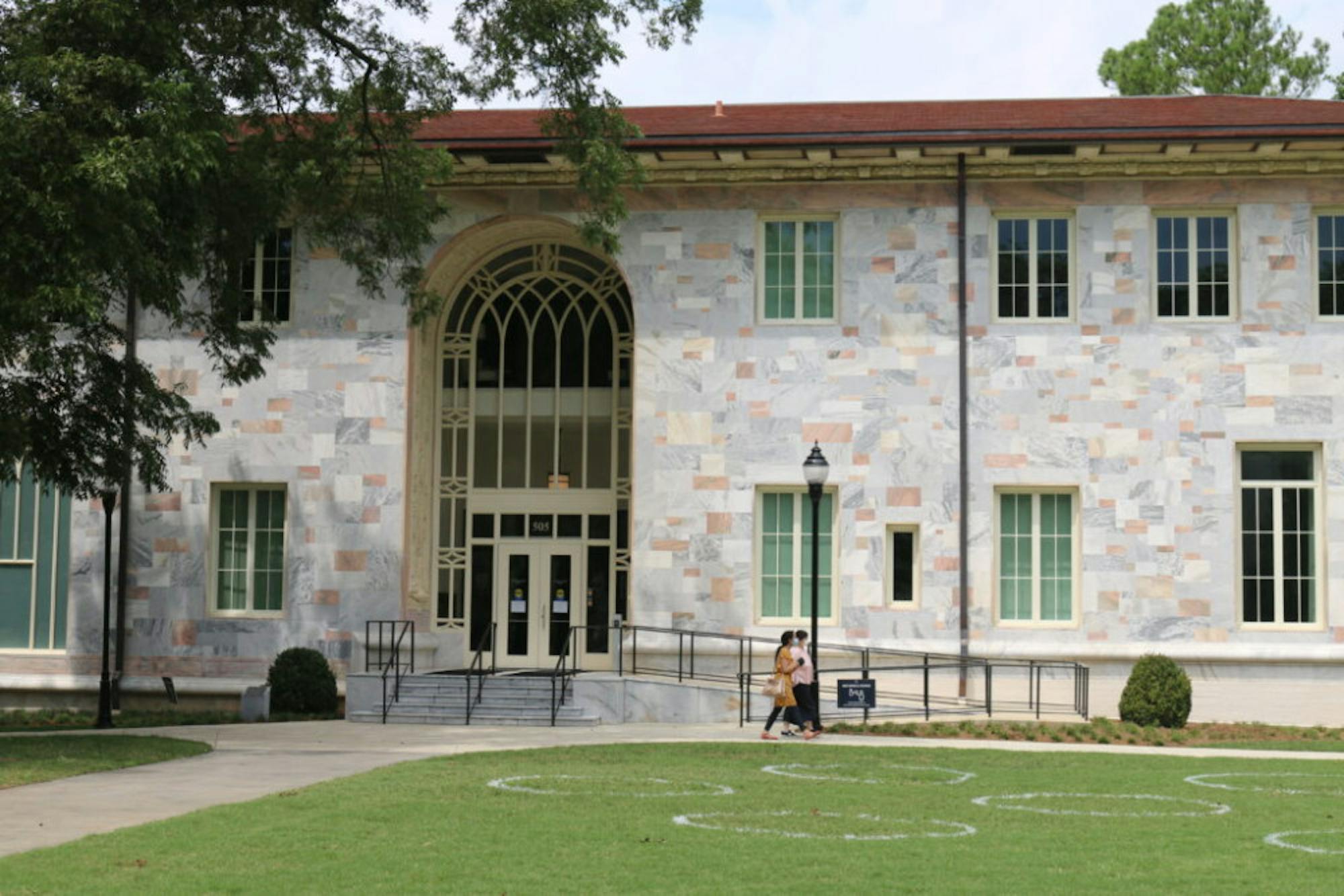Content Warning: This article contains references to sexual assault.
The Emory University Student Government Association (SGA) unanimously passed a bill to increase education about sexual assault on campus at their Nov. 14 meeting. Bill 57sl30 will require Emory College of Arts and Sciences club executive board members to attend a Sexual Assault Peer Advocates (SAPA) 101 training event when requesting supplemental funding starting next semester.
SAPA, a student-led group working to create and promote a survivor-friendly campus, will host at least two training sessions per month, according to the bill. The training consists of a 45-minute PowerPoint presentation about supporting survivors of sexual assault. Members of the Office of Respect fact-checked the presentation, which concludes with a reflection activity depicting scenarios one may encounter in college, according to SGA co-Vice President of Well-being Jean Qian (23Ox, 25C).

Clubs’ “SAPA Trained status” will expire at the end of each academic year, according to the bill.
SGA President Khegan Meyers (24B) explained that the bill amended SGA’s Finance Code, which requires two votes in consecutive sessions. SGA first voted to approve the changes on Oct. 16, but did not vote in the next meeting on Oct. 23 and had to restart the voting process with a new vote on Oct. 30. The group did not meet on Nov. 6, making yesterday’s session the necessary vote to officially approve the amended finance code.
Oxford College SGA (OxSGA) passed a similar bill last year requiring club presidents and treasurers to be SAPA-trained prior to receiving a charter, according to Oxford SAPA (OxSAPA) co-President Asmita Lehther (24Ox), who wrote the bill as an OxSGA first-year senator.
“There was a really pressing need for students to have access to trainings about sexual assault and giving resources and empowerment and advocacy, especially since a lot of students didn’t necessarily have the time or the capabilities to get trained, just with the way that current schedules work,” Lehther said. “I saw that there was a way to address that by including it in the club chartering process.”
Lehther wrote that the initiative has been successful and all club presidents were required to attend the SAPA training sessions.
Unlike the OxSGA bill, Bill 57sl30 will only apply to clubs seeking supplemental funding. Meyers addressed the difference between the bills, explaining that SGA is more federal in nature and does not charter clubs. He added that supplemental funding is the most common way clubs appeal to SGA for resources, making it a logical tie to the SAPA training.
SGA co-Vice President of Well-being Pranay Mamileti (26C) explained that SGA is only requiring clubs that request supplemental funding to undergo SAPA training to test the viability and effectiveness of the bill before potentially requiring all club executives to complete the training.
“Our eventual goal is to make sure that for any funding request that any club does, they receive this training,” Mamileti said.
Qian sees the bill as a way to create positive change on campus.
“The goal is to incorporate as many people who are viewed as leaders as possible to become educated about sexual assault, but also just creating a culture where these conversations are happening in the first place and people are knowledgeable about them,” Qian said.
Students inherently view club leaders as a “confidential resource,” according to Qian, who added that student leaders have a responsibility to support sexual assault survivors.
“There’s this element of trust that comes and is very inherent with leadership,” Qian said. “If somebody’s trusting you and you’re not entirely educated or knowledgeable about sexual assault and the resources that that person can … have at their disposal and even just a lack of trauma-informed response and support, that can be very dangerous.”
Meyers said he feels optimistic about the initiative based on “overwhelmingly positive” reactions from legislators and students. He added that he believes students recognize the need for broader education on sexual assault prevention and awareness on campus.
Mamileti sees the bill as the most effective way to push for broader sexual assault advocacy on campus.
“Students uniquely are able to connect with other students and persuade other students and educate them much better than any administration would be able to, much better than any external organization would be able to,” Mamileti said. “That's why it's crucial that it's our peers that are the people who are trying to push these initiatives forward.”
Looking ahead, Lehther hopes that all students will be educated about sexual assault prevention and made aware of resources they can turn to for support, such as SAPA.
“The objective is, of course, that everyone would be SAPA-safe-trained, but this is just one of the ways that we can use SGA resources as a conduit of that,” Lehther said.
If you or someone you know experienced sexual assault, you can access Emory’s Department of Title IX at 404-727-0541 and the Office of Respect’s hotline 24/7 at (470) 270-5360. You can reach the RAINN National Sexual Assault hotline 24/7 at (800) 656-4673. You can reach the Atlanta Grady Rape Crisis Center crisis hotline 24/7 at (404) 616-4861 and the Decatur Day League Sexual Assault Care and Prevention crisis hotline 24/7 at (404) 377-1428.









